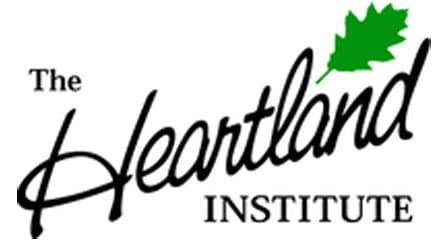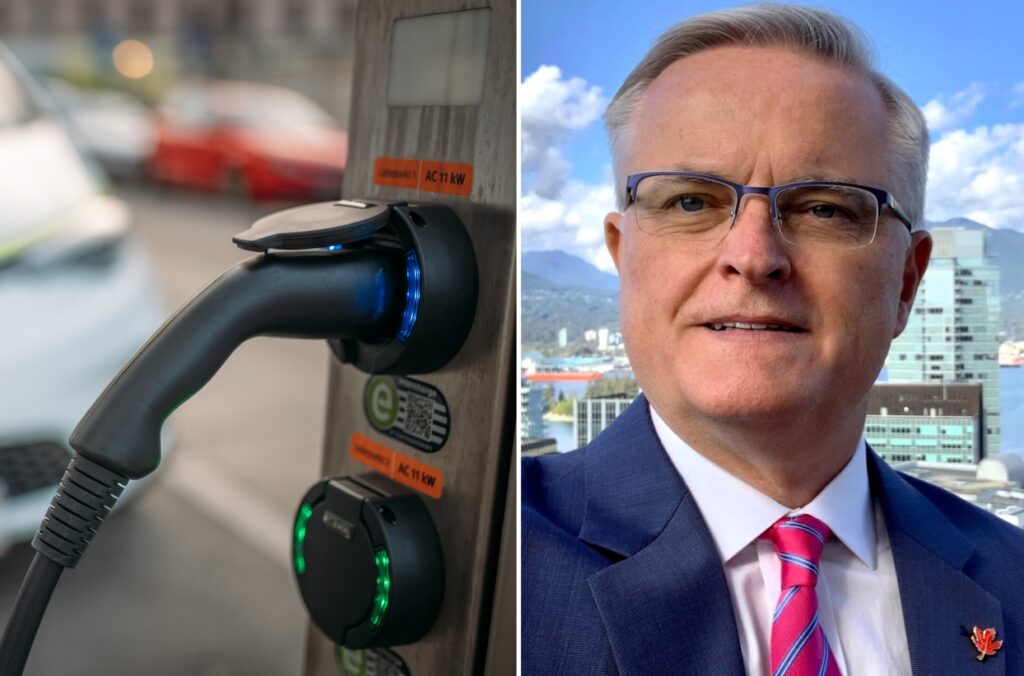President Joe Bast Dodges Responsibility – for Now
It’s been a month since the Heartland Institute was caught in a St. Valentine’s Day Striptease – inadvertently exposing its entire budget and fundraising plan. Yet an objective analysis of the resulting internet and mainstream media coverage has to credit Heartland’s spin machine with having put in a remarkable performance. Heartland’s own staff members and its echo chamber of denialist blogs have been shameless – and stunningly successful – in deflecting responsibility from the institute’s own sins and onto the scientist who duped Heartland into handing over a treasure trove of internal documents.
There are three potential explanations for this turn of events:
- The Heartland posse is unbothered by any tendency to let the facts get in the way of their story;
- They have access to and support from a fierce and disciplined echo chamber, at least part of which Heartland actually funds on the side; and
- Mainstream media give Heartland a free pass. That is, reporters have become so cynical about the “think tank” campaign to deny the science of climate change that they no longer treat it as news. But those same reporters still respond in outrage if a scientist is perceived to have done something dishonest or deceptive.
Consider how the story broke – and how quickly and forcefully Heartland responded. As mentioned above, the initial document dump occurred on St. Valentine’s Day, a fitting day for denuding a Chicago-based think tank. A source, who was then still anonymous, sent 15 recipients a package of information containing copies of the briefing materials for the January meeting of Heartland’s Board of Directors. These included the 2012 budget, the fundraising plan and a document that was basically an executive summary of Heartland’s 2012 climate strategy.
This looked to the DeSmogBlog like a great gift. We have been writing about Heartland for years, documenting the institute’s general dishonesty, its record of taking corporate money to defend sullied industries (especially tobacco) and its moves to become known as the think tank that most aggressively promotes doubt about the science of climate change. Here was documentary evidence, prepared by Heartland itself, that rather than being a research or educational organization, the institute is actually a lobby firm that crafts and promotes its questionable positions with an eye to raising funds from fossil fuel companies, tobacco firms, pharmaceuticals and other industries that have an interest in trying to cripple the ability of government to set standards for public safety and environmental protection.
On February 14, it happened that our frequent contributor, John Mashey, had just finished a huge research paper on Heartland, which meant that we had a large amount of information in hand against which we could check the legitimacy of the documents sent by “Heartland Insider.”
Given this information, and our own extensive coverage of Heartland’s deception efforts over the years, DeSmogBlog quickly satisfied ourselves that the documents were authentic. So we posted everything that we had received, in its entirety, so no one could accuse us of cherry picking the most outrageous bits.
(Heartland has complained since that we didn’t confirm with them the legitimacy of the documents before we ran our story. This criticism is neither reasonable nor credible. With the exception of a single complaint that Joe Bast posted on our website years ago, Heartland has never taken a phone call or answered an email from the DeSmogBlog. Even today, more than a month after the event, no one at the institute has answered our email query about these documents. It seems clear that Heartland had no interest in confirming the legitimacy of the documents – the release of which was clearly in the public interest. Rather, they were just committed to keeping them out of public view, by whatever means necessary.)
Heartland’s first response to the document dump was stunned silence. But by midday on February 15, you could see how they were going to spin the story. In its first public response, Heartland communications director Jim Lakely dismissed the documents as “stolen and faked” – even as they also apologized to their funders for the embarrassment of being revealed. (How could something be fake if it was stolen or stolen if it was fake? And why would you apologize for the release of information that you consider sensitive if the documents were not legitimate?)
The accusation that the documents were “stolen” was powerful, if not entirely accurate: Lakely acknowledged in this first statement that a Heartland employee had sent the material willingly (even if under false pretenses) to someone we were later to learn was the climate scientist Peter Gleick. But the claim that one of the documents was “faked” was, from a spin point of view, the master stroke. By calling into question of authenticity of the Climate Strategy, Heartland was beginning to undermine the credibility of all the documents, even as they reframed the whole story to present themselves as victims – embarrassingly unwitting victims, but victims nevertheless.
**(See clarification below) I believe it was James Delingpole of the U.K. Telegraph who first dubbed the story “Fakegate.” And, from a spin perspective, he deserves a grudging amount of credit for having done so. The “gate” suffix is now mandatory usage for every scandal, even if it’s increasingly annoying and annoyingly unoriginal. But even progressives have realized the usefulness of “gate” as a shorthand for “bad thing.” Our own version of a snappy scandal title, “Deniergate,” was misquoted early on as “Denialgate,” creating a serious schism in the Google world. If you search today for Fakegate, you get 514,000 hits. Search for Deniergate, you get 64,700 and for Denialgate and you get 166,000. So, by that measure Heartland’s frame rules.**
No wonder. Within days of the story breaking, Heartland had registered “fakegate” and launched a whole website: http://fakegate.org/. There, instead of this being accepted as proof that a corporate lobby firm was masquerading as a tax-deductible think tank, it was “another global warming scandal” in which a scientist had been caught doing something underhanded. The ultimate expression of the “fakegate” campaign came just last week when Heartland’s external PR department, the website WhatsUpWithThat, released a “study” suggesting that the strategy document was “forged” by Peter Gleick. In a memo celebrating this “study,” Heartland President Joe Bast says, “The new analysis is important because virtually all of the negative coverage of The Heartland Institute and the global warming ‘skeptics’ movement that followed the release of the stolen and forged documents was based on the assumed authenticity of the forged ‘confidential memo.’”
This is Exhibit A in the case proving that Heartland won’t let facts get in the way of their story. Bast’s statement, while compelling as a bit of spin, is patently false. The negative coverage of Heartland and its skeptics-for-hire was based – in every detail – on Heartland’s performance and their “experts” own perfidy.
The Heartland use of the word “forgery” is interesting, given that the literal definition of “forgery” is a counterfeit copy of something real. In this instance, even if accept that Bast did not write or commission the Climate Strategy (and we don’t), every substantive element within that document is confirmed by information in Heartland’s Budget or Fundraising documents or in other material exposing Heartland’s questionable business model.
So, to point Number 1: Joe Bast is either unconcerned about the truth; or perhaps fears that it might “set him free” – the Strategy document contains clear implications that the author is privileging certain members of the Heartland Board of Directors. If this was traced to Bast, most corporate board members would judge it to be grounds for dismissal.
To point Number 2: Heartland clearly has access to a fierce and disciplined echo chamber. There were no unhelpful arguments in their camp about what to call this scandal. It also had a purportedly independent blogger, Anthony Watts, either making or implementing Heartland’s communications strategy as the story unfolded. (Watts, proprietor of WUWT, is deeply indebted to Heartland, which most recently has paid him $88,000 for “research” on weather stations). There were points during the last month when Heartland didn’t even bother to release statements itself, (1, 2) instead getting Watts to post them directly on his site. Watts has also been the leading commentator accusing Peter Gleick of wrongdoing, including by financing the “forensic analysis” into the Climate Strategy’s likely authorship.
The third point speaks to how media covered this story – and the Google tally of “fakegate” hits gives one potential answer. Outside of the community of bloggers, readers, and the small number of mainstream journalists who still take climate change seriously, the initial story captured very little media attention. As quoted by one of Heartland’s own preferred climate commentators, Judith Curry, NPR radio host Larry Mantle put it in context this way: “Isn’t this a dog bites man story? Didn’t we already know this? Why should we be surprised if an advocacy (organization) receives money from donors, and uses it to pay people to write educational materials that express their viewpoint?” For many reporters, writing a story about think tanks misrepresenting climate4 science would be like reporting on minor car accidents or murders in a bad neighbourhood: after a while, you know people will greet the news with a shrug. Why bother?
A much better story, apparently, is the think piece about Peter Gleick’s ethical conduct. The best example here was in the Columbia Journalism Review, which glossed straight over anything that might be amiss at Heartland and pondered instead on the question, “When, if ever, are deceptive tactics legally or ethically permissible in journalism?”
This is a relevant and interesting issue. But obsessing about it at this point is akin to turning your attention to a dripping faucet during the course of a house fire. In the public and political conversation, we are increasingly losing of any semblance of scientific accuracy. Among potential Republican presidential candidates, accurate commentary on climate science is regarded as so toxic as to be politically suicidal. Yet, the media have come to accept that as perfectly normal.
Now, we hear that Heartland is again bent on creating a K-12 school curriculum package that will move this disinformation agenda from the Republican political conference rooms into our public schools – and the media reacts by concluding: “dog bites man.” They see this as predictable or perhaps even “normal,” not worthy of coverage.
In the flip side, it’s perversely positive that reporters have been so offended by Peter Gleick’s decision to dupe Heartland by claiming in an email that he was actually a board member. Clearly, reporters generally hold scientists in very high regard. So, while they yawn at Heartland’s record of wrongdoing, they have been much more engaged – and much more critical – of Gleick’s apparent ethical lapse.
There is another possible explanation for the media willingness to run with Heartland’s version of these stories. Perhaps it reflects reporters’ own fears of appearing “radical,” of losing the more conservative members of their audience. Or perhaps, the window of conversation has been shifted so far right by the extreme voices that make themselves heard without any intention of being taken seriously, that the mainstream media has actually begun to take them seriously. If that’s the case, if media is so lacking in confidence in its own purpose and perspective, it’s no wonder that public trust in the media is in such a state of decline.
There is a danger to analyzing a campaign like this (and on Heartland’s part, this has certainly been a campaign), because it begins to look like a game – one in which the “winners” are the ones who appear most clever, who have the best resources and who are least bound by rules (such as fealty to the truth) that would compromise their ability as “players.” This is the kind of elbows-up political rough and tumble best symbolized by the old (perhaps apocryphal) story about U.S. President Lyndon Johnson wanting to spread unseemly stories about his opponents four-legged taste in sexual partners. When told that his campaigners could not prove such an allegation, Johnson is quoted as saying, “I know that. I just want to hear him deny it.”
It’s a vaguely funny story, full of realpolitik energy. But it still speaks to a form of public communication that – do I really have to say it? – is wrong. Yet, we have grown so used to politicians and (certain) public relations people stepping jauntily over this line that we have given up holding them accountable.
In this case – instead – too many in the media and online community have chosen to attack Gleick. Others on the DeSmogBlog have risen to his defence; I won’t. But it still seems clear that the greater injustice here is being committed by an organization that – by its business model – exists to serve individuals and corporations that want to fool the public on serious issues of health and safety, and want a tax deduction for doing the damage.
** Clarification – A number of our readers pointed out that Google results for Fakegate turn up all kinds of non-Heartland related results. Many “fakegate” results were reports of an old scandal involving the Detroit Lions or another one about a Chinese mobster lawyer or even forums and websites where people discuss the “fakegate” roleplaying game which appears popular in Asia. So Heartland and Delingpole don’t deserve the credit for all that noise.
Unfortunately, the primary point of this post remains unaffected – lies work. As the saying goes, a lie can travel halfway around the world while the truth is putting on its shoes.
After being caught red-handed with a plan to lie to schoolchildren about climate science, the denial echo chamber was able to craft a tobacco-like defence strategy to obscure the real story about the Heartland Institute’s shameful activities, and misdirect the media to chase a shiny penny side story.
We should all be concerned that the public isn’t demanding that Heartland close its doors and publicly apologize for its plans to deceive children. **
Subscribe to our newsletter
Stay up to date with DeSmog news and alerts







